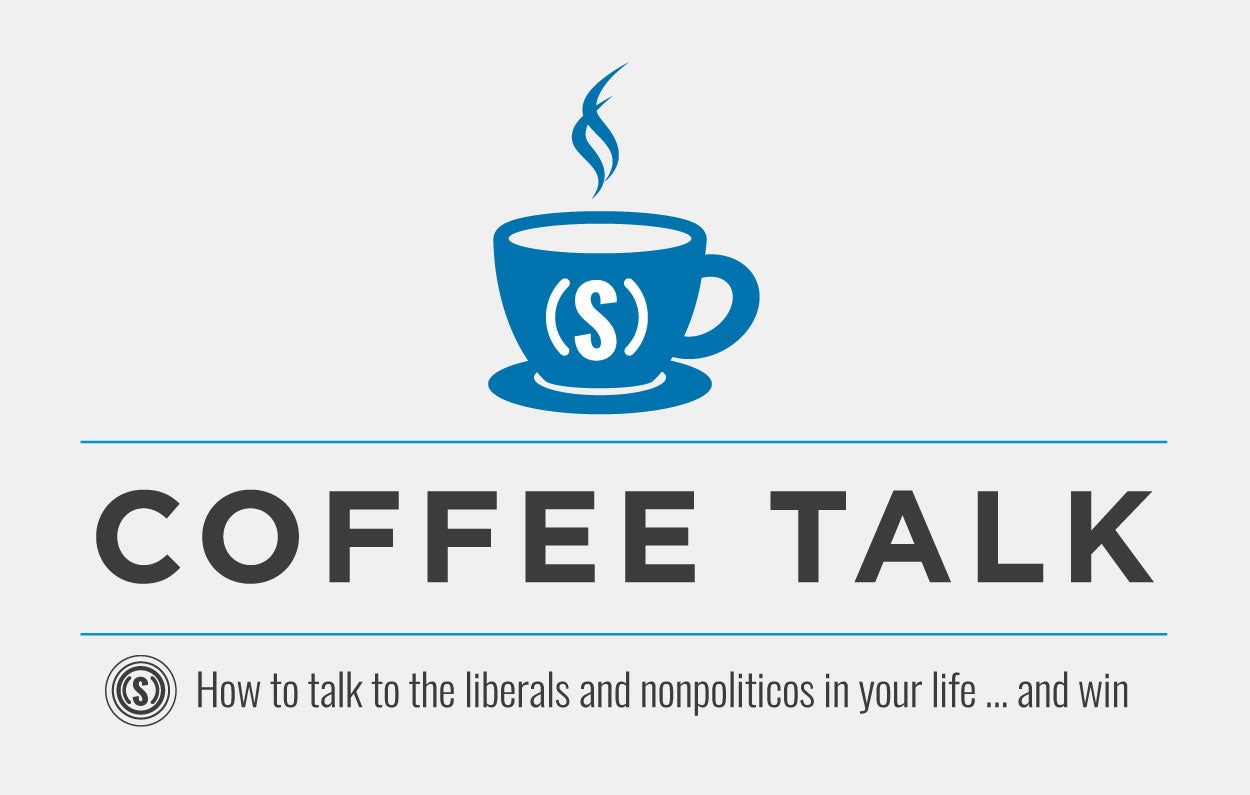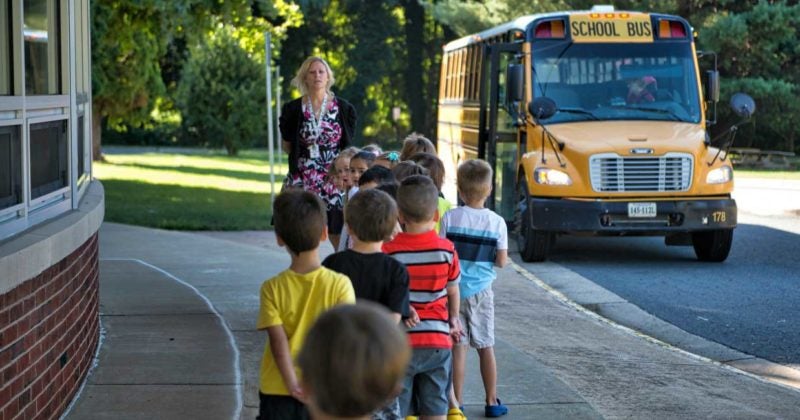

School choice offers “choice” and “opportunity” to kids stuck in failing schools. (Photo: Douglas Graham/ Loudoun Now /Newscom)
“Choice” always seems to be a winning argument for the left, except when it comes to education. Liberals repeatedly cry foul as soon as someone champions school choice at (what they perceive to be) the expense of public education. Conservatives claim the opposite is true—school choice empowers students by giving their families educational options.
So, it seems like we’re at an impasse with no middle ground in sight. Not true. As we’ve talked about these past several weeks, there are points of agreement to acknowledge, examples to use, and words to help frame your argument.
School choice is a nuanced and controversial topic, but not one that can’t be addressed.
1. Common Ground
Whether someone supports school choice or not, everyone wants quality education for kids.
This plot of common ground is also why the debate can get so heated—education is an important component of society and the key to opportunity. As the discussion continues on how to achieve ideal educational reforms, remember that the person you’re debating most likely agrees that children should have access to quality education regardless of ZIP code or parental income. Start there.
2. Examples
Once you express common ground, the best way to win the “school choice” argument is by illustrating its successes, so show examples of how and where it’s worked.
Tell the story of District of Columbia charter schools. Since school choice was established in 2004, more than 6,000 students have graduated at levels well above the public school average. Then transition to your community—how many kids in your neighborhood/city/state wait in line to walk through metal detectors because they’re placed in an unsafe public school? If a safer environment exists outside their ZIP code, give them the opportunity to attend. Only good comes when kids are allowed to learn in a safe environment.
Tell the story of exceptional kids who are disadvantaged if they’re made to fit into the one-size-fits-all public school down the block. Every student is different, so the educational experience should be best tailored to him/her. A violin prodigy will be better served by attending a fine arts high school; a child with health needs may be better served by learning online.
And here’s the kicker—if you think America’s public schools need reform, then you should champion school choice. It’s been proven time and again that public schools improve when school choice is allowed in the community.
3. Words
This is an emotional topic, and liberals love to emphasize words like “choice” and “opportunity” and “fairness” in reference to education. But we say, STEAL THEIR WORDS.
School choice offers “choice” and “opportunity” to kids stuck in failing schools. What’s “fair” is to give all kids a chance regardless of their ZIP code. Be emotional, not economic; make your argument about the people involved rather than the cost to the taxpayer. By stealing their words, you’ll also prove that school choice more effectively and efficiently achieves the goals liberals think failed big-government policies should.
Bottom line: find common ground, use examples, insert the right language, and you’ll be a champion in the fight to make sure every kid receives a quality education.
[bold, italics, and colored emphasis mine]
Beverly Hallberg is the president of District Media Group.
"Behind the Rise of Public School Costs: The Growing Number of Non-Teachers" - Lindsey Burke / Benjamin Scafidi / July 20, 2016 / http://dailysignal.com/2016/07/20/behind-the-rise-of-public-school-costs-the-growing-number-of-non-teachers/






No comments:
Post a Comment